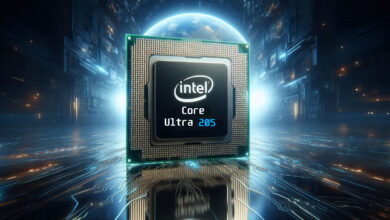The upcoming Intel lineups supposedly won’t suffer from the instability issues, which have affected a lot of high-end Intel Raptor Lake and Refresh chips. In a blog post, Intel explains what you should expect in the future.
Intel terms the instability issue as ‘Vmin Shift Instability’, which won’t be carried to newer CPUs
After a long investigation of the instability issue with the Raptor Lake and its Refresh lineup, Intel has finally come up with the claim that their next-gen desktop and mobile processors won’t go through the same issue any more. In a recent post on Product Support Forums, Intel confirms that both Arrow Lake and Lunar Lake are not affected by the Vmin Shift Instability, which has caused havoc for 13th and 14th-generation users.
Intel is sharing a few important updates on the Intel® Core™ 13th and 14th Gen desktop processor Vmin Shift Instability issue investigation, including ongoing guidance for BIOS updates and settings and the status of upcoming next gen product families. Intel will be publishing another update by the end of September.
Furthermore, the company assured that it would protect future product families from the Vmin Shift Instability. Intel also gave a complete list of the current and previous generation lineups, which aren’t affected by the instability issue:
- Intel Alder Lake desktop and mobile CPUs
- Intel 13th and 14th gen i5(non-K) and i3 CPUs
- Intel 13th and 14th-generation mobile CPUs, including the HX-series.
- Intel Xeon CPUs for server and workstation
- Intel Meteor Lake Core Ultra CPUs
The Arrow Lake and Lunar Lake are the next ones that Intel adds to this list. However, it did remind users to run their systems with the latest BIOS even if they don’t own the high-end Core i7s and i9s from the 13th and 14th-generation lineups. The instability issues have caused a lot of permanent failures of the chips that degraded over time due to the increased minimum voltage.
Even though Intel has released the microcode(0x129) update, it is just a workaround fix that would minimize the deterioration of their CPUs. This microcode addresses the incorrect voltage requests in order to ensure that the processors aren’t fed very high voltages that result in permanent deterioration. Hopefully, the Arrow Lake and Lunar Lake CPUs won’t suffer from the same problem, which could seriously harm the company’s reputation to the point, where users would have no choice other than to go with AMD CPUs.
We have seen the Arrow Lake S desktop processors in action in some tests, but at the moment, Lunar Lake will be the first to launch on 3rd September. While it’s mobile-specific, Arrow Lake will come to both desktops and laptops later. The Vmin Shift Instability has made users highly skeptical of Intel CPUs and Intel still has some time to mitigate the issue properly.






